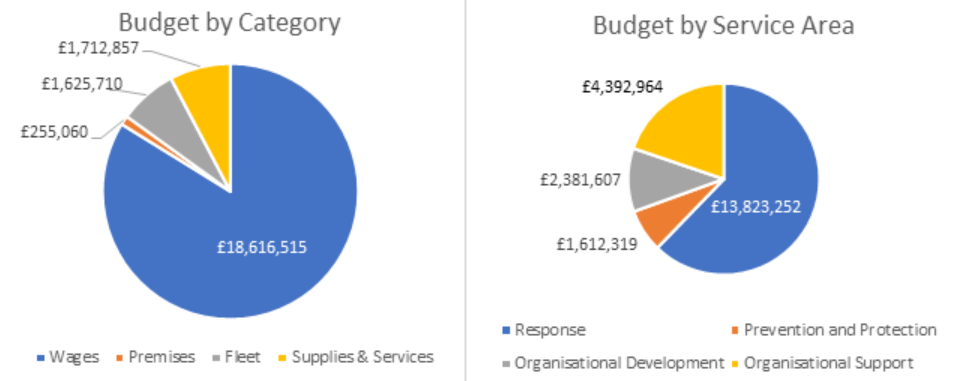Financial overview
Lincolnshire Fire and Rescue receives its revenue and capital funding from Lincolnshire County Council (LCC) annually. View LCC’s budgets and financial strategy.
When we, along with other public organisations, are facing an uncertain future, we must have a practical and effective financial plan in place. We achieve this by closely and regularly examining our finances at all levels, ensuring we get the best value for the money we spend to achieve our goals. To help us plan, we ensure our funding assumptions from central and local sources align with our agreed objectives.
We are dedicated to finding more efficient ways to provide our services by working closely with other agencies. This could involve shared facilities, joint procurement, or partnership agreements. We are also committed to understanding the economic cost compared to the benefits of investing in our services and the value it brings to our communities.
We actively participate in the NFCC economic cost of fire project. We will ensure the results of this work align with our evaluation framework and financial planning for the future.
Our budget is managed in two ways:
- the revenue budget covers the everyday expenses of running our organisation, including salaries and wages
- the capital budget is allocated to specific projects and programmes
We have a ten-year capital plan agreed with LCC where the funds are released when needed in the project lifecycles. For 2023/24, LFR’s revenue budget was set at £22.2m, an increase of £326k from last year. This is to address the budget pressures from the high level of inflation and the reduction of the Firelink government grant. The capital budget is £2.7m.
The information below explains how we allocate our revenue spending by function/service area and category. As in most organisations, the category staff wages form the bulk of our spending.
Response is the largest cost when looking at items by service area, with operational firefighters making up over three-quarters of the workforce.
However, station-based firefighters carry out training, prevention and protection duties as part of their working day, so the response budget contributes to activity in other areas.
Budget by category:
- wages - £18,616,515
- premises - £255,060
- supplies and services - £1,712,857
- fleet - £1,625,710
Budget by service area:
- response - £13,823,252
- organisational support - £4,392,964
- organisational development - £2,381,607
- prevention and protection - £1,612,319
A backdated pay award for 2022 and mid-year in 2023, means the revised 2023/24 budget is now £24.7m. For 2024/25 it is proposed that the budget increases by a further £322k, (1.3%), to £25m. This is due to cost pressures on the Service from the Fire Control project and mandatory accreditation of forensic fire investigation and DBS checks. The capital budget is set at £4.6m. These figures are still subject to change following public consultation and council approval.

